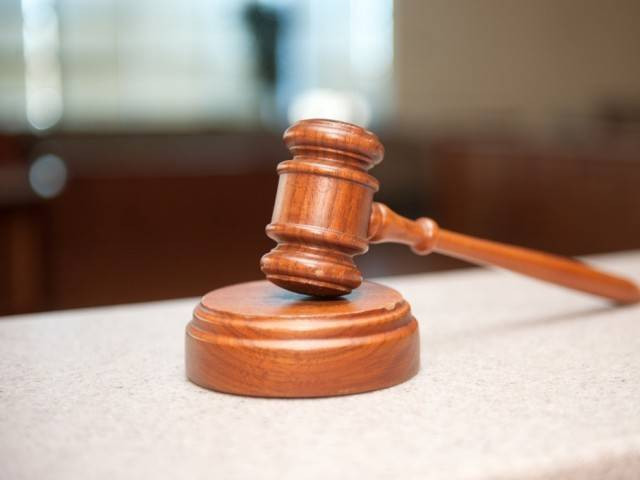Global bodies worry over Pakistani lawyers’ safety
Govt urged to prevent attacks; make enforced disappearances a criminal offence

Court could not interfere in such policy matters, says Justice Shahid Karim
International lawyers organisations including the International Association of People's Lawyers and the European Association of Lawyers for Democracy and Human Rights have prepared a report highlighting the threats faced by Pakistani lawyers from fundamentalists and terrorists.
The report noted that at least 11 lawyers have been murdered in Pakistan since March 2018. Between 2004 and 2014, 310 lawyers were killed in five separate attacks.
Individuals including high-profile lawyer Saif-ul-Malook continues to face a high risk of death or physical harm. Malook received death threats after his client was acquitted.
A less prominent case involves Shagufta Kauser and her disabled husband Shafqat Masih, who were accused of sending blasphemous text messages to a cleric. They have been imprisoned for five years now, face the death penalty and are also being represented by Malook.
Along with condemning the torture which Masih was subjected to at the hands of the police, Malook also expressed concerns that the judge who handed down the death sentence was intimidated by hard-line lawyers and religious leaders in the community.
Due to his representation of the people accused of committing blasphemy, Malook continues to receive death threats.
The international organisations suggested that providing temporary protection to such lawyers outside of Pakistan could be an effective protective mechanism for protecting them from serious harm or death.
In the report, they also demanded the immediate and comprehensive implementation of Justice Qazi Faez Isa’s judgement on the August 2016 massacre of lawyers in Quetta.
"The Lawyers' Rights Watch Canada (LRWC) calls on the government of Pakistan to investigate and remedy the murders of Bilal Anwar Kasi and each of the estimated 78 others killed in the bombing, the majority of whom were lawyers,” the report read.
“The LRWC also calls on the government of Pakistan to give priority to ensuring the identification and punishment of the perpetrators through effective investigation, competent prosecutions and fair trials,” it added.
“In consultation with legal professionals and security experts, the government of Pakistan must put in place measures to prevent such attacks and to ensure that lawyers are free to carry out their professional duties in safety and without fear of reprisals or attacks. “
The international bodies recommended making enforced disappearances a criminal offence and ensure that all allegations of enforced disappearance and extrajudicial executions were investigated and those responsible are brought to justice.
"Conduct an independent inquiry into all suspected cases of enforced disappearances of lawyers and human rights defenders and hold accountable those responsible. Investigate all reports of attacks on lawyers, journalists and human rights defenders and bring the perpetrators to justice,” the report read.
“Continue efforts to cooperate with the special rapporteur on the situation of human rights defenders to ensure that all allegations of improper use of criminal laws are investigated in an effective, impartial, and prompt manner."
At the conclusion of the report, the international bodies noted that courageous lawyers of Pakistan had suffered greatly for many years, including many murders and instances of serious harm.
“Although some segments of the international legal community have documented and spoken out against these attacks on some occasions, we are of the view that much more needs to be done to focus urgent international attention on this tragic situation. They deserve our total support and our solidarity.”



















COMMENTS
Comments are moderated and generally will be posted if they are on-topic and not abusive.
For more information, please see our Comments FAQ